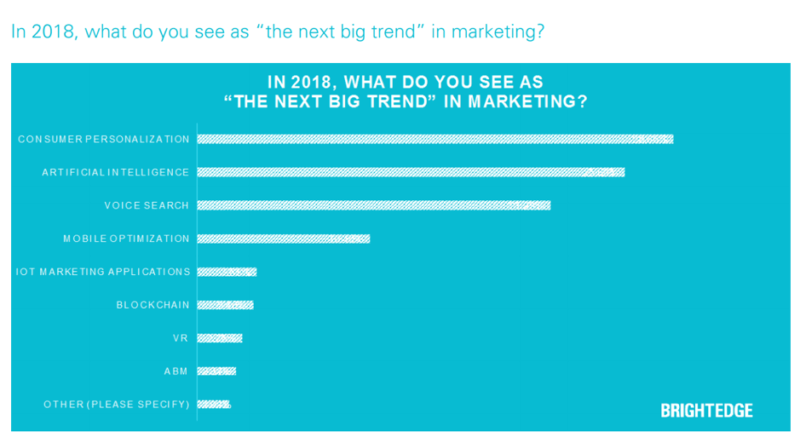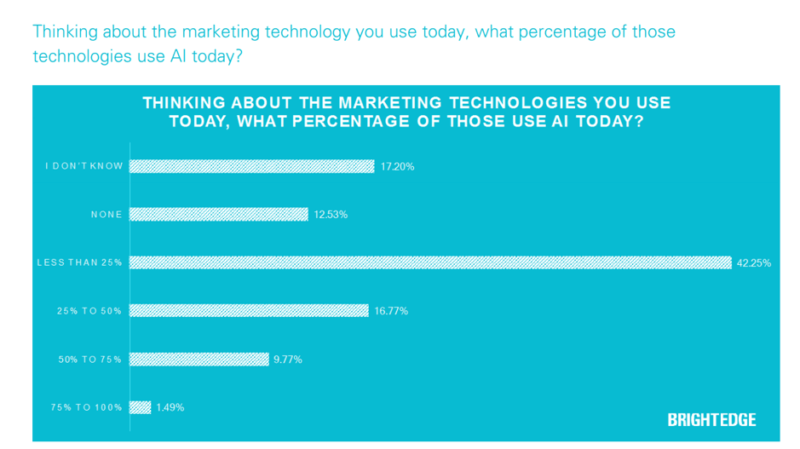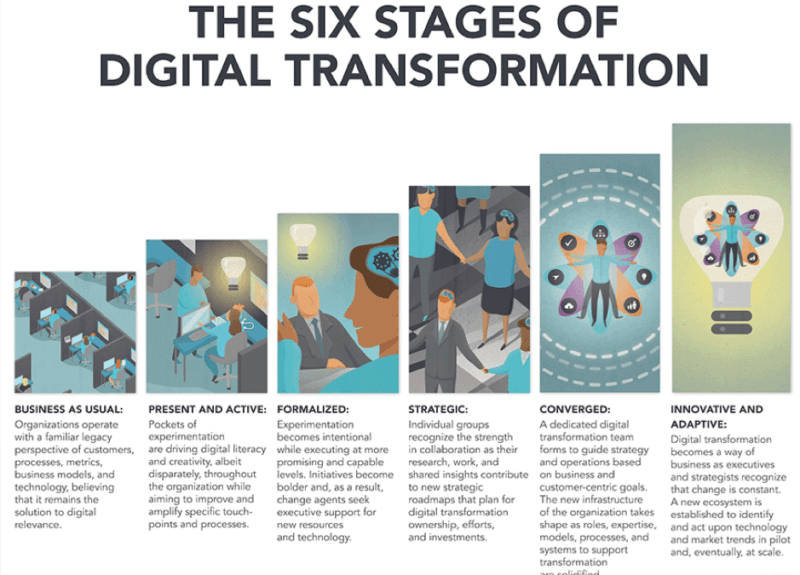How the acceleration of AI will drive digital transformation: Automation and personalization
Contributor Jim Yu explains how artificial intelligence will be woven into the modern marketing organization.

As the digital world continues to shape and consume the physical world, the scope of digital transformation within businesses keeps expanding. We are in an era of unprecedented opportunity, and much of the growth we experience over the next decade will be driven by artificial intelligence. In fact, PwC predicts that AI will add $15.7 trillion to global GDP annually by the year 2030.
Artificial intelligence is already a key driver of digital transformation across a wide range of sectors, from insurance to manufacturing and the automotive industry. The potential of this technology to shift business strategy to a truly customer-centric model remains largely untapped, but CMOs everywhere are increasingly aware of the need for an “AI-first” approach.
The reasons for this are self-explanatory. With more data at our disposal than we have ever known, and more effective technologies allowing us to make sense of it all, we can start to deliver better experiences for the modern consumer’s needs. AI provides a scalable, highly efficient way to deliver on this promise.
A recent survey from BrightEdge (my employer) revealed just how central AI is within the strategies of senior marketers in 2018:

The top three responses, which account for 75 percent of the total, are all related to artificial intelligence.
It is simply impossible to separate the practice of digital transformation from AI.
We need to dig deeper to unveil the specific AI applications that will have the biggest impact on digital transformation. Marketers are aware of the benefits AI can bring; the key now is to put it into practice within digital transformation strategies.
Removing organizational silos
Any successful digital transformation effort is driven by a shift in mindset within an organization. To effect this change, new internal structures are required to allow people to collaborate across functions.
This new structure should allow departments such as marketing and IT to work together seamlessly, for example. For its part, IT becomes more than a separate company function and is instead ingrained within every level of the hierarchy, both vertically and horizontally.
As digital moves from being a project toward a core business value, the level of technological sophistication grows, too.
Every department is responsible for understanding the role that AI plays in this tech stack, but many are still unaware of AI’s presence within their marketing software. Returning to the survey we fielded, we can see that 17 percent of respondents are unsure of whether their technologies use AI, with 13 percent stating that theirs do not and another 42 percent answering that fewer than 25 percent of the technologies they use employ AI.

There are some clear lessons to be taken away here.
Digital transformation depends on new structures and new ways of working, but CMOs should also investigate their existing technologies to uncover the potential AI applications they already have at their fingertips.
Personalization, at scale
All businesses focus on their customer, to a greater or lesser degree. Many will claim to be “customer-centric,” but that term requires a significant effort before it can be applied accurately.
Removing organizational silos, with the aim of moving away from a product- or segment-focused structure, can start to facilitate a customer-centric culture.
The outcome of this shift can be combined with AI marketing technologies to create personalized messaging at scale.
Using the huge repositories of historical data to which established companies have access, it is possible to understand the customer journey and employ predictive analytics to project the outcome of future interactions with the brand.
With a clear view of the consumer’s path to purchase across devices and platforms, we can engage in digital storytelling that tailors its messaging based on each individual’s past interactions with our marketing assets.
The potential for personalized content marketing has only recently been realized in any concrete terms, and there is still a long way to go before we arrive at a seamless approach to this discipline.
AI technologies can also comb through our data and surface important insights that we otherwise would never have time to uncover. These software packages play the role of a dedicated team of data scientists, with the advantage of being hugely scalable.
Performance through automation
It is essential to apply a more agile organizational framework as part of a digital transformation process, just as it is vital to use data and AI to deliver true customer-centricity.
The processes that keep this machine running smoothly should also be automated to create repeatable, reliable functions that can be used globally.
The consensus has shifted somewhat on the role of AI in this area. Rather than view this as a threat to our employability, most senior marketers now say that AI can manage the laborious aspects of our jobs and work with us to produce better outcomes.
This relationship between people and technology can be a hugely fruitful one, but we must define where the responsibilities for certain tasks lie. AI technologies can analyze data at a scale we can barely even conceptualize, and they can learn from real-time feedback to adjust how they function. This can liberate employees to focus on the strategic aspects of their campaigns.
Thus, automation is not just about getting computers to carry out the tasks we would prefer not to do; automation is about performance. AI can perform these tasks more successfully and cost-effectively than we can, uncovering new insights in the process that allow us to build better experiences for our customers. In fact, 27 percent of marketers we surveyed cited greater productivity among their staff as the prime benefit of AI solutions.
Conclusion
Artificial intelligence and digital transformation go hand-in-hand, but a concerted effort is required to maximize the potential of this symbiotic relationship. Digital transformation needs new structures, new technologies and most of all, a new mindset in relation to the customer.
With these parts in place, AI can flourish by uncovering new insights, creating personalized experiences and enhancing the capabilities of our marketing departments.
Contributing authors are invited to create content for MarTech and are chosen for their expertise and contribution to the martech community. Our contributors work under the oversight of the editorial staff and contributions are checked for quality and relevance to our readers. MarTech is owned by Semrush. Contributor was not asked to make any direct or indirect mentions of Semrush. The opinions they express are their own.
Related stories
New on MarTech
